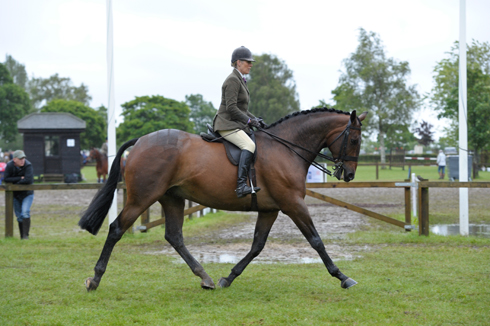When is an amateur not an amateur? That question is again rearing its head and sparking off some heated opinions.
The answer is quite simple: it’s whatever definition appears in the relevant rulebook. If a rider isn’t breaking the rules, then there’s nothing to complain about — and if you don’t like the rule, bring it up for discussion at the association or society’s annual meeting.
As I write, the British Show Horse Association is due to review its amateur status rule. Members were asked to submit suggestions and it was due to be discussed at the national championships by the rules sub-committee earlier this week (8 September). Watch this space.
The general definition of an amateur — which I have no problem with — is someone who does not derive an income from horses. Some riders think that anyone who is legitimately an amateur but also judges, or who once gained an income from horses but no longer does so, should be classed permanently as a professional.
Why? Circumstances change and you can’t penalise someone for gaining expertise. There are amateurs out there with professional standards and some do very well.
As for insisting that judges are automatically professionals — that’s absurd. Many judges are professionals, including me. Judging is a way of putting something back into the sport I love. But to be a judge, you have to prove that you can assess and/or ride horses; it has nothing to do with the way you earn your living.
It’s hard enough to get people to become judges, so don’t make it more difficult. I’ve heard riders claim that judges shouldn’t compete, but if that were the case, the showing circuit would collapse because there wouldn’t be enough judges.
High Equifest standards
It was a shame to hear, yet again, complaints that professionals should not have been at Equifest. As the concept of the show was to attract amateur riders and any competitors wanting to give novice horses experience, where does this argument come from?
When those who do are not breaking the rules, what is there to complain about?
There was plenty to be positive about at Equifest. I saw some lovely animals who were beautifully ridden as well as some who, with more experience and finesse, could hold their own in most rings.
It was a pleasure to run training classes again and to see riders who had progressed from last year. There is so much enthusiasm for these classes and often it’s a case of pointing out small changes which can bring big improvements.
Lock up your lorries
I was sad to hear of incidents of vandalism and theft, and horrified to learn that someone could stoop so low as to cut off a horse’s forelock. Then again, how stupid do you have to be to believe that a judge could be influenced by the presence or absence of forelock hair?
Thousands visited Equifest and the East of England showground became a small town. It’s impossible for show organisers to have foolproof security, so I’m afraid that to a large extent, it’s down to owners to look after their property.
Equifest isn’t alone. Earlier this year, thieves took rugs from horses’ backs, headcollars and even shavings from stables at Royal Norfolk. It’s sad, but organisers can’t police everyone who comes to a showground and I’m sure there are people with no connection to competitors who come purely to steal.
I feel sorry for the person who posted on social media that she left her horsebox unattended for 5min, but had her handbag stolen. Unfortunately, I’m not surprised.
The answer is, of course, to secure your horsebox. We wouldn’t leave our cars unlocked in a supermarket car park and be surprised if the contents were stolen and we have to take the same attitude to our horseboxes and towing vehicles.
Can I suggest looking at code-operated locks? The code can be shared on a “need to know” basis and changed at intervals. When you add up the cost of a show lorry’s contents, it is a small price to pay.

